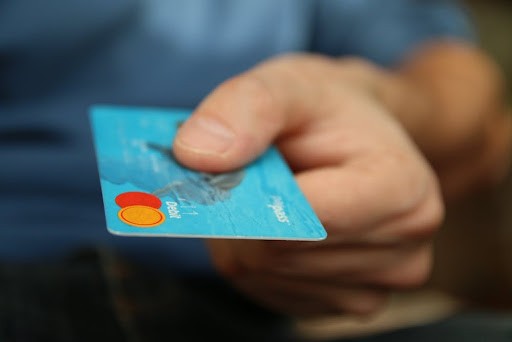
Whether you are just getting into banking online and investing, or are a long-time investor, keeping yourself and your assets safe and secure online is vital. Just with anything, online banking comes with its fair share of risks and challenges. Online banking has been made as safe as possible by the institutions that run them, but there are still many security threats that consumers need to be aware of, so they don’t put their money at risk.
Table of Contents
What are the most common threats you should be aware of?
There are many different cyber threats that you should be aware of, so you can take preventative action against them. Unfortunately, cyber threats are becoming more sophisticated and targeting people in new ways every day. Some of the most common threats you should be aware of are:
Malware
Malicious software that targets a network or device and for example takes over the system.
Phishing
An email, which can be suspicious, or impersonate a big brand, which is intended to trick the recipient into clicking a hyperlink that downloads malware or disclosing confidential information e.g. bank details.
Once you’re aware of these kinds of cyber threats that put your money and assets at risk, you can be more vigilant. Below are some of the best ways to take safety precautions.
Find a reputable bank that you can trust
You should first ensure that the institution that is holding your money is safe, and can be trusted, such as Provident State Bank. You can do this by conducting thorough research before signing any contracts, speaking to family, friends, and colleagues to see who they bank with, checking their reviews, ensuring they are a registered business, visiting them in person and speaking to their staff, and check that they are a registered member of a governed body, such as Federal Deposit Insurance Corporation.
Don’t log into your accounts on public computers or with public WiFi connections
Unfortunately, you never know how safe public computers or WiFi connections are, as so many people use them daily, especially those in coffee shops, public transport, and your local libraries. If you ever have to use the public connections, then you should assume that it is unsafe and your browser history can be accessed, and take extra precautions. Ideally, you should not log into anything, especially your bank account, and save that online activity for when you are on your own, private network.
Keep an eye on your bank statement for suspicious activity
It is important to make a habit to regularly check your bank statements, for example, once per month. This will enable you to get familiar with your spending activity and be able to easily spot something that looks suspicious. Banks are typically quite good at detecting fraud and suspicious activity, but it is always a good idea to check yourself, so you can catch anything early on.
Set up alerts
You can take this a step further if you wish to, and set up alerts. Most banking institutions will be able to provide a text service that will alert you if there is suspicious activity, a large purchase, or you have gone over a certain limit. Some banks also have applications now, whereby you can manage your money on your phone safely and securely, so you can check it regularly, but also be alerted to activity on your card and approve transactions.
Change your passwords regularly

This should be a practice with all your accounts, not just your bank account. Changing your password regularly, for example, every 90 days at least, will help keep your account nice and secure. Your password should always be something that is a combination of upper and lowercase letters, special characters, and numbers. Avoid using words that are easy to guess, or personal to you, your family, work, and interests. Make sure it is long (more than 14 characters) and is not stored anywhere unsafe on any of your devices.
Take precautions and use anti-virus software
Any device that you do use, even though it is your private one, should still be equipped with up-to-date and trustworthy anti-virus and anti-malware software. This will allow for the best protection against any cyber-attacks, providing you keep it updated. If you use online banking on your devices, then this will protect and alert you if you ever click on a spam website or malicious software is trying to be downloaded onto your device.
Be careful when you open texts and emails

Your bank should never send you a text or email asking you to provide your bank details. If you are ever asked for them, and you have reason to believe it is your bank asking for them, you must always go to the source. Type in their website address in your browser, and contact them directly. Never click any links or download any documents. Unfortunately, these kinds of emails are becoming more realistic every day, with millions of people falling prey to them each year. There are also lots of emails and texts going around claiming to be a postal service, or shop, asking you to re-submit your payment details.
What to do if you do fall victim
In the unfortunate event that you do fall victim and your money is at risk, or you suspect there has been some suspicious activity on your account, then you should contact your bank as soon as possible, who will be able to help you. How they can help you in this situation should be laid out at the beginning of your contract with them, as each bank will be different with the services they provide you with in this particular scenario. Ensuring that you take all of the above precautions, can be your best chance at getting your money back. If the bank finds that you were negligent, then you may lose all your money.
You must take as many preventative steps as possible to keep your money and investments safe and secure.